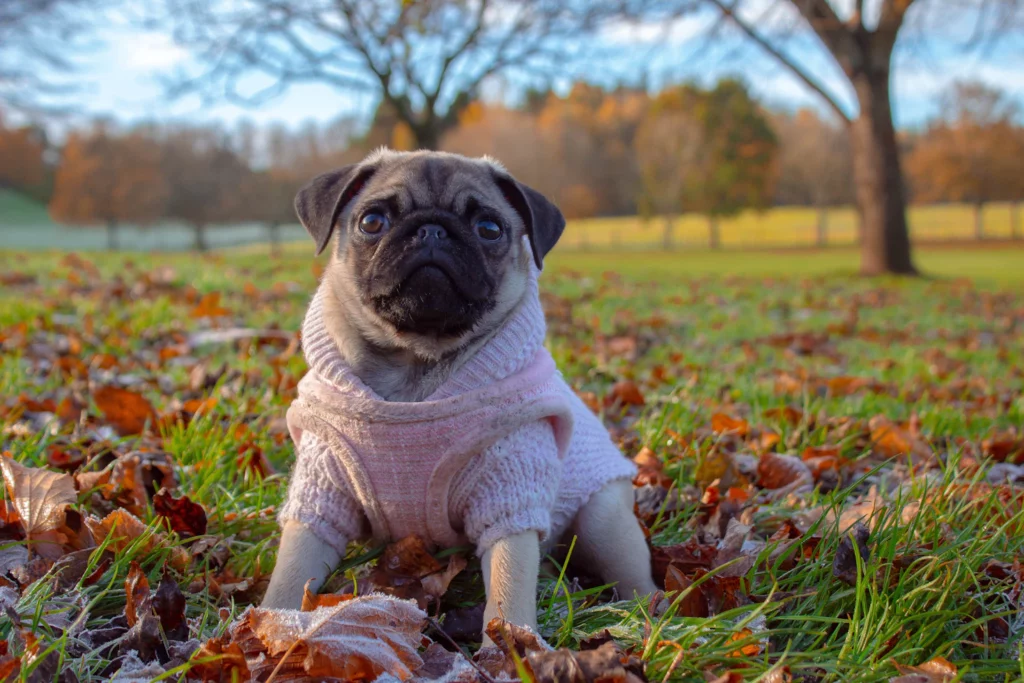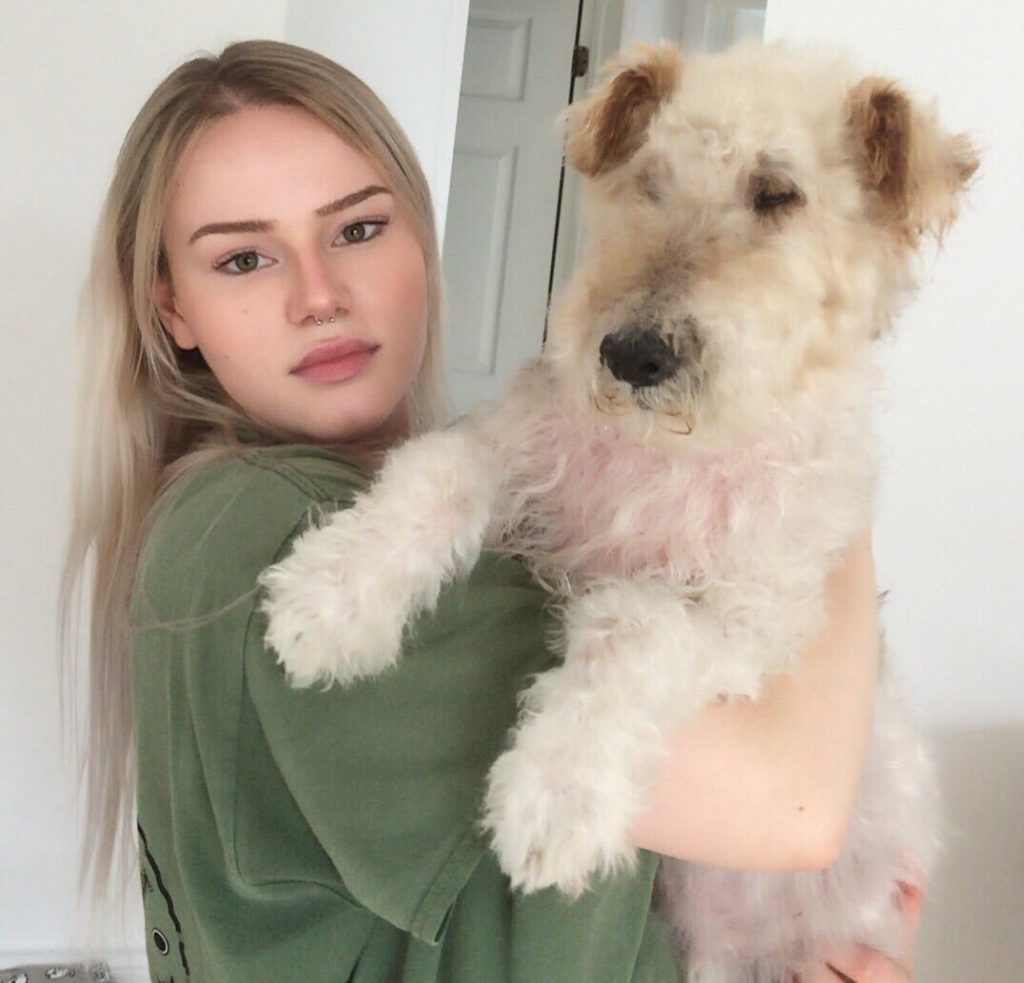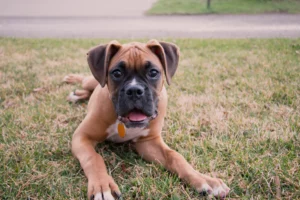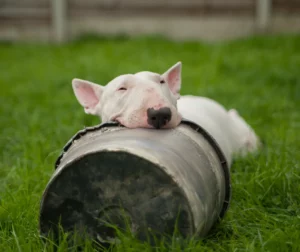Your Pug’s incessant barking can quickly become a source of frustration for both you and those around you. In this article, you will find helpful tips on how you can manage your dog’s excessive barking. But before you try to correct this behavior, it’s essential to understand why your dog is barking. As with any canine behavior, barking can have a variety of causes, each requiring a specific approach.
Why Is My Pug Barking?
The first step in solving this problem is to identify the cause of the barking. Here are the main reasons why your Pug might be barking:
- Attention Seeking: Your Pug barks to get your attention, hoping to interact with you.
- Frustration or Boredom: A lack of physical or mental stimulation can cause your dog to bark to release excess energy.
- Warning Signal: Like all dogs, your Pug has a protective instinct that leads him to signal the presence of intruders or unusual events.
- Separation Anxiety: Some dogs bark excessively when they are lonely or anxious when you are not around.
How Do I Get My Pug to Stop Barking?
The second step to successfully reducing excessive barking is to fulfill your dog’s natural instincts and needs.
Mental Stimulation
Mental stimulation is crucial for reducing excessive barking in pugs because it helps keep their minds engaged and prevents boredom, which is a common trigger for barking. Pugs are intelligent dogs that need mental challenges and activities to stay content. Without enough mental stimulation, they can become frustrated or anxious, leading to excessive barking as a way to release pent-up energy or to seek attention.
Engaging your pug in activities like puzzle toys, training sessions, or interactive play provides an outlet for their natural curiosity and intelligence. This reduces their urge to bark out of boredom, stress, or the need for attention. By keeping their minds busy and fulfilled, you help create a calmer and quieter environment for both you and your pug.
Physical Stimulation
Daily exercise is important for reducing excessive barking in pugs because it helps burn off excess energy. Pugs, despite their small size, still need regular physical activity to stay healthy and balanced. When they don’t get enough exercise, they can become restless, frustrated, or bored.
Exercise not only helps to tire them out physically but also has mental benefits, as it provides opportunities for exploration and stimulation. Activities like walks, playtime, or gentle fetch can satisfy your pug’s need for physical activity, making them less likely to bark out of restlessness or the desire for attention. By ensuring your pug gets enough daily exercise, you help create a calmer, more content pet who is less prone to excessive barking.
Daily routine
A daily routine can significantly reduce stress and help manage excessive barking in dogs by providing them with a sense of predictability and security. Dogs thrive on consistency because it helps them understand what to expect throughout the day, which reduces anxiety and stress. When a dog knows when they will be fed, walked, played with, and rested, they are less likely to feel uncertain or stressed, which are common triggers for excessive barking.
Ensuring they have a safe space to retreat to, avoiding exposure to stressful situations, and providing comfort through companionship can all contribute to lowering their stress levels.
How Do I Stop My Pug From Barking at Me?
When your dog barks at you, it is because he is looking for your attention. It is therefore essential not to encourage this behavior.
To prevent your dog from barking at you, ignore him completely when he starts barking: do not look at him, do not talk to him, and do not react. As soon as he calms down and stops barking, reward him immediately with your attention. This way, he will understand that barking does not bring him anything rewarding.
Remember to always reward good behavior. If you see that he hesitates to bark, but chooses to remain silent, reward him. Even after he understands that he should not bark, continue to reward him to reinforce this good habit. This will also prevent him from falling back into his bad habits.
How Do I Get My Pug to Stop Barking When I Am Not Home?
To help your Pug stop barking when you’re not home, there are several strategies you can use to reduce the stimuli that trigger his barking and keep his mind occupied.
1. Reduce outside stimuli
Your Pug can be easily stimulated by outside noises or movements, which will cause him to bark. To prevent this, you can close the curtains or use window film to frost the windows at his height to limit his view of the outside. This will reduce the chances that he will bark in response to what he sees outside. You can also try to block out outside noise by playing relaxing dog music.
2. Create a calm environment
Get your Pug used to being in a quiet space while you’re away. If your dog spends all day barking at the window, he will be much more stressed in his daily life, since he is always on the lookout for what is happening outside. A room can be a good option, as long as you never force your Pug into it. It is also important to create positive associations with the room, such as receiving treats or playing with a favorite toy. You can also feed your Pug in the room. Make sure your Pug can’t look outside so that he doesn’t react to every movement he sees.
3. Exercise before you leave
Spend your Pug’s energy before you leave the house! This will help him stay calm while you’re gone and help him control his barking. A Pug who has used up his excess energy will be calmer and less likely to develop or exert unwanted behaviors, such as excessive barking.
4. Occupy his mind
A bored Pug is a barking Pug so give him interactive toys to keep him occupied while you’re gone. A West Paw Toppl filled with treats, a snuffle mat, or a treat-dispensing ball can keep him occupied and distract him from outside stimuli. You can also hide treats around the house for him to search for, which will keep him mentally engaged. Play classical music or put on DogTV to keep him from getting bored and getting triggered by outside stimuli while you’re gone.
5. Ask for help when you’re away for longer
If you’re going to be gone for more than five or six hours, consider asking a neighbor, friend, or dog walker to take your Pug out. This will give him a chance to stretch his legs and burn off some energy, which will help him stay calm until you return.
By implementing these strategies, you can help your Pug reduce his barking while you’re away and feel more relaxed when he’s alone.
Separation Anxiety in Pugs
Separation anxiety is a common cause of barking in dogs. This disorder can be triggered by changes in your routine, a move, or even a new schedule. Signs include excessive barking, destructive behavior, or gastrointestinal distress.
If you suspect that your Pug is suffering from separation anxiety, it is advisable to consult a canine behaviorist specialized in separation anxiety who can guide you in setting up an intervention plan adapted to your dog’s needs.
A Visit to the Vet
Finally, it is important to note that excessive barking can sometimes be a sign of a health problem. Pain due to arthritis, hearing loss, or even a tumor can be at the origin of this behavior. If you have any doubts, a visit to the veterinarian is necessary.
By taking a patient approach and identifying the cause of the barking, you can help your Pug return to a calmer, more balanced demeanor.
You may be interested in these articles:
-
Daily Routine: Why Does Your Dog Need It?
-
The Essential Guide to a Problem-Free Dog
-
Stressed or Anxious Dog? The Solution: Enrichment
-
Dog Punishment : The Best Technique
Bibliographic sources:







